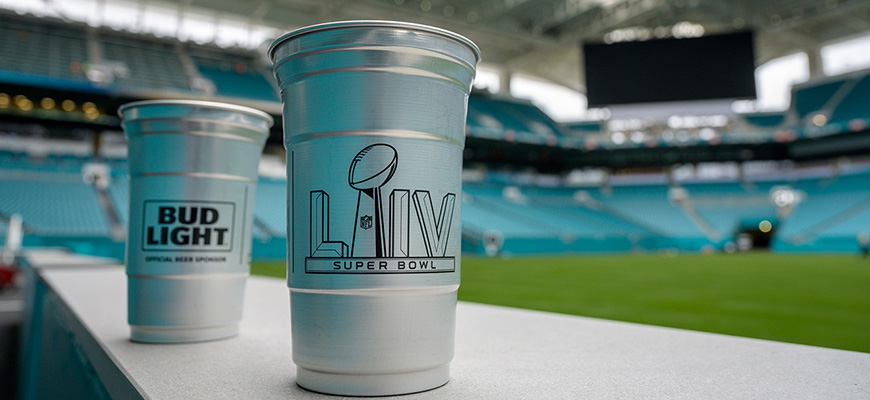
Creating your own Rocket Industrial personal account has many benefits:

In a recent study, Footprint—a technology-innovator with a vision to eliminate single-use and short-term use plastics—found that 81% of consumers believe that there is an obligation by companies to design packaging that is healthy and environmentally cautious. The US EPA reports that 91% of plastic waste is not recycled, even when placed in recycling bins. Of this 91% of plastic waste, 13% of it is sent to incinerators which emit plastic particles into the air and the remaining 78% sit in landfills.
To try to combat this, Super Bowl LIV has selected Footprint as its sustainability partner. Each NFL game produces about 35 tons of waste, about 1.5 pounds per fan, while the Super Bowl could create up to 50% more waste. Footprint will feature its sustainable product line in the Super Bowl LIV Environmental Village to educate Super Bowl goers about environmentally friendly tailgate options and the future of grocery store packaging. By showcasing compostable, biodegradable, and recyclable products for tailgates and grocery stores, Footprint hopes to inform viewers of making the switch out of plastic to preserve our future.
To create an immediate impact, Hard Rock Stadium is collaborating with Ball Corp. to use disposable aluminum cups which will eliminate over 50,000 plastic cups at every NFL game. Starting with 20-ounce aluminum cups that are infinitely recyclable, Ball is expected to create 12-ounce and 16-ounce versions later in 2020 to increase usability. Already implemented at the University of Colorado Boulder football games, users have expressed liking the lightweight, sleek look, and durability of these cups to evolve the recycling revolution.
As customers are continuing to seek sustainable beverage packaging options, launching the aluminum cups will be significant for Ball. Dolphins CEO Tom Garfinkel has made it a personal mission to eliminate 2.8 million pieces of plastic annually from the Hard Rock Stadium and expects to be 99.4% plastic-free in the future. Jack Groh, director of the NFL Environmental Program, states that although the NFL competes with other leagues for the attention of fans, they all must cooperate to take care of the earth.